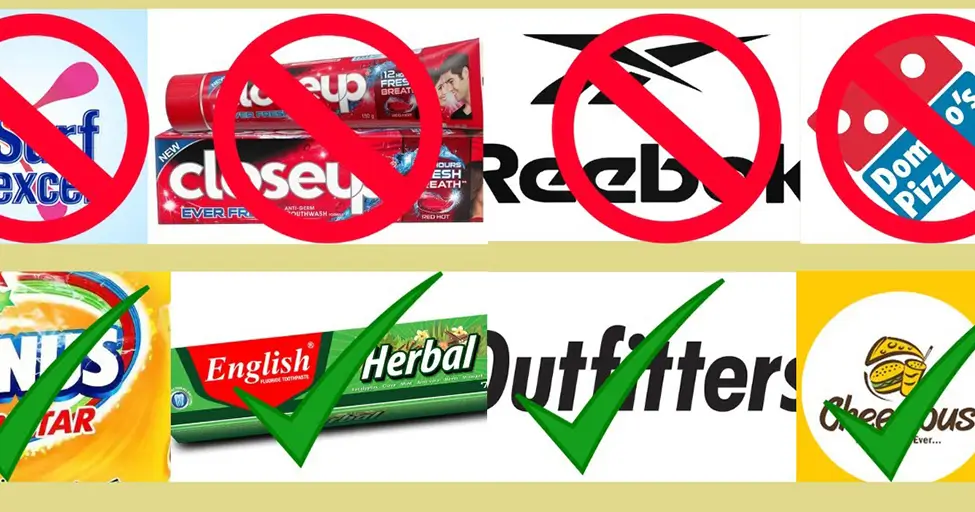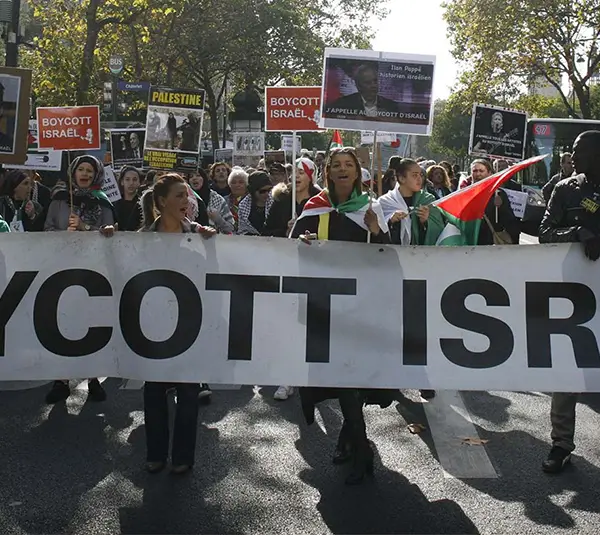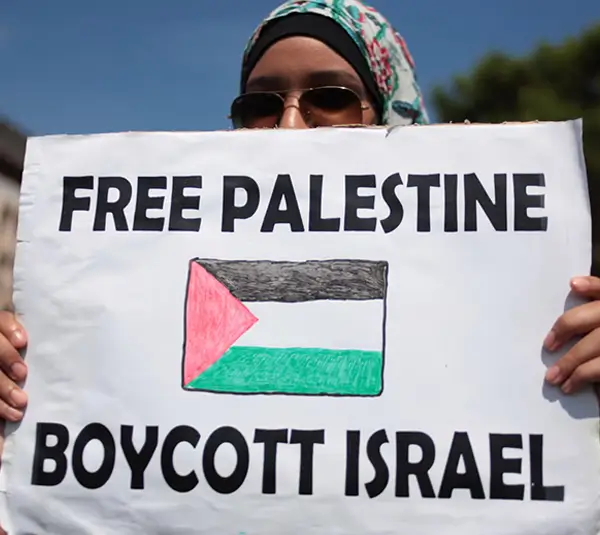Pakistani Consumers Show Power: Does Boycotting Make a Difference for Palestine?
- Abeera Marium Siddiqui
- February 29, 2024
- 2:03 pm

In recent years, a boycott movement for Palestine has gained momentum in Pakistan as citizens aim to show solidarity and apply economic pressure on Israel through consumer activism. This economic activism for Palestine manifests itself in boycotts of companies associated with Israel as well as refusal to purchase Israeli products. But does this consumer activism really make an impact?
The Rise of the Boycott Movement in Pakistan
The Palestinian solidarity movement in Pakistan has steadily grown over the past decade. Outrage over Israel's treatment of Palestinians and occupation of their land has led many Pakistanis to take action through their wallets. This consumer activism for Palestine involves boycotting multinational corporations complicit in Israeli human rights abuses as well as refusing to buy Israeli products. Some of the most prominent boycott campaigns in Pakistan target companies like Coca-Cola, McDonald's, Nestle, and Starbucks, which have links to Israel. Activists urge the Pakistani public to avoid purchasing these brands. There have also been calls to boycott Israeli fruits, technology products, and processed foods imported to Pakistan.

Do Consumer Boycotts Affect Israel Economically?
But do these boycotts of Israeli products actually deal a blow to the Israeli economy? Experts say the economic impacts are minor so far. Total trade between Pakistan and Israel is small, valued at around $1 million annually. So Pakistanis forgoing Israeli imports does not significantly hurt Israel's $400 billion economy. Additionally, many major corporations like Coca-Cola and McDonald's have large market shares in Pakistan. Local franchises and distributors in Pakistan, not Israel, take the revenue hit from boycotts of these multinationals. However, if the boycott movement for Palestine expanded globally, some analysts say measurable economic damage to Israel could occur. But currently, the effects are marginal.
Boycotts as Solidarity Symbols
Although consumer boycotts on Israel may not tangibly weaken its economy, they serve as powerful symbols of solidarity with Palestine. When millions of people worldwide consciously avoid Israeli products and companies tied to Israeli human rights violations, it demonstrates growing opposition to Israel's treatment of Palestinians. Boycotts also shine a spotlight on key issues like Israel's continued settlement construction in the occupied West Bank and the dire humanitarian situation in Gaza. By creating public awareness and stimulus for political action, this furthers the Palestinian cause.

Do Boycotts Change Policy?
Can consumer boycotts realistically change Israeli policy toward Palestinians? Historical precedent suggests citizen action like boycotts can eventually influence policy. For example, boycotts were a key strategy of the anti-apartheid movement against South Africa's former white supremacist government. Combined with sanctions and divestment, these boycotts helped pressure the South African government to end apartheid.
To have a chance at impacting Israel, advocates say the boycott, divestment and sanctions (BDS) movement needs to dramatically expand worldwide. If adopted by millions more conscientious consumers, coordinated boycotts could inflict economic pain that Israeli businesses and politicians feel. This could spark reforms benefiting Palestinians. While the road is long, history shows that organized consumer activism can produce policy changes if the movement grows large enough. The passion for Palestinian rights demonstrated by boycotters in Pakistan and elsewhere fuels hope that these grassroots economic protests may someday effect critical changes on the ground.
CATEGORIES


Your go-to destination for diverse and engaging content!
Explore a world of knowledge, entertainment, and connection right at your fingertips.
POPULAR POSTS





